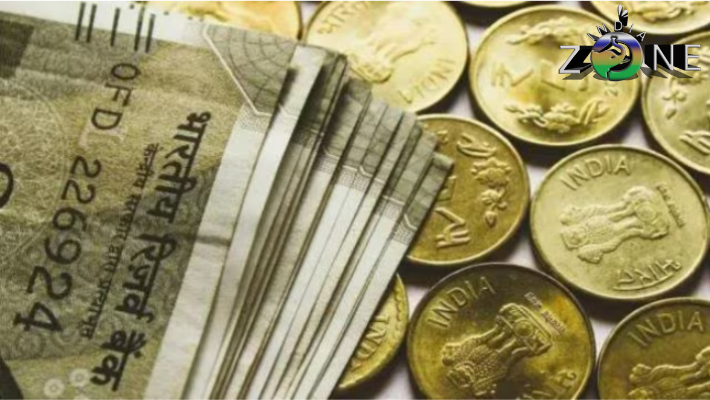
Actor-producer Vijay Antony raised a lot of controversy during the ‘Romeo’ film festival with comments he made about Jesus Christ and drinking.
His remarks caused the Christian Association to react strongly, sparking strong criticism and heated debates in both social and theological sectors. In an attempt to provide clarification and address the controversial subject, Antony quickly released his statement in response to the growing agitation.
The episode demonstrated the delicate balance between religious sensibilities and freedom of expression, as well as the timeless ability of words to elicit strong feelings and initiate public conversation.
expand: Vijay Antony, who is well-known for his wide range of roles and endeavors, is presently working on the movie “Romeo.” During a press conference, queries concerning the scene’s background surfaced following the release of the movie poster, which showed Mrinalini, the lead actress, pouring alcohol.
In his defense, Vijay Antony staunchly upheld the portrayal in question, adamantly asserting that the depiction of alcohol consumption should not be subjected to gender discrimination. With fervor, he highlighted the historical ubiquity of alcohol across cultures and epochs, drawing upon diverse references to bolster his argument.
Antony pointed to religious narratives, including mythological accounts, where revered figures such as Jesus Christ were depicted engaging in the consumption of wine. Furthermore, he delved into the annals of history, evoking instances such as the Chola period, wherein the imbibing of the soma drink was prevalent.
By weaving together a tapestry of cultural and historical anecdotes, Antony sought to contextualize and justify the portrayal, underscoring the nuanced complexities surrounding the portrayal of alcohol in art and media.
The Tamil Nadu Federation of Christian Churches responded to Vijay Antony’s words with immediate and decisive criticism. They issued his statement that was resounding with solemn anger, expressing their extreme dismay and highlighting the hallowed dignity that the Christian religion accords Jesus Christ.
They condemned Antony’s remarks as extremely offensive and maybe hurtful to the feelings of Christians around the world. The federation was adamant in demanding that Vijay Antony provide a clear and urgent public apology, emphasizing the seriousness of what they saw as disparaging comments.
They also sent out a strong warning, announcing that if Antony did not make a genuine and repentant apology, there will be large-scale protests soon.The fast action taken by the federation demonstrated how sensitive religious concerns are and how important it is to take responsibility when someone is believed to have offended strongly held beliefs.
In an attempt to address and allay the growing worries, Vijay Antony quickly released a statement in response to the growing criticism. In his reply, Antony attempted to clarify the meaning behind his statements, emphasizing that his words were meant to shed light on historical context rather than to offend.
In a cool-headed manner, he emphasized the long-standing custom of grape juice, pointing out its historical importance in religious contexts—especially churches—and its frequent allusion in sacred writings.
Antony emphasized his steadfast respect for religious feelings while making it very evident that he had the utmost regard for Jesus Christ and the values that he represented. Additionally, he underscored his resolute dedication to accuracy and tact while discussing subjects of this delicate nature, highlighting his sincere wish to promote cooperation and understanding rather than strife.
With his statement, Antony aimed to ease tensions and create a path forward while reiterating his commitment to having honest and compassionate conversations.
The way that Vijay Antony handles the continuing discourse surrounding his reaction as the dispute develops will surely influence how it is resolved and have a significant effect on his professional path as well as how the public views him. It is his responsibility to address the immediate impact and minimize any long-term effects on his reputation and professional status by his following remarks and actions.
Beyond what it means for Antony personally, the episode raises more general questions about the obligation placed on public leaders to be thoughtful and compassionate in their communication, especially when dealing with sensitive religious issues. The importance of powerful people in influencing public opinion is amplified in a time of increased social consciousness and scrutiny, thus it is important for them to be more conscious of the possible consequences of their words and deeds.
In fact, the story highlights the serious ramifications that can result from careless or unintentional words made in public and serves as a sobering reminder of the difficult balance that must be struck between the right to free speech and the requirement for cultural sensitivity.
It emphasizes how important it is for public officials to treat conversations about issues of religious significance with the highest consideration and deference, taking into account the varied range of customs and beliefs that make up society as a whole.
In the end, the episode serves as a warning, causing us to reflect as a group on how critical it is to promote an atmosphere of mutual respect and understanding in our conversations, where differences are recognized and handled with tact and empathy.
It acts as a call to action for increased cultural awareness and a revitalized dedication to promoting fruitful discourse among the diverse range of values and beliefs that characterize our common humanity.










